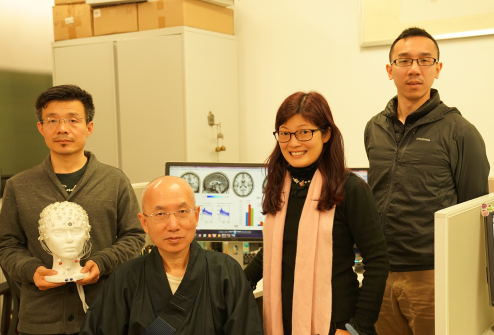
Buddhist Practices and Counselling Science Lab
In the past decade, there has been a tremendous upsurge of interdisciplinary research between Buddhism, psychology, counselling, neuroscience, and medicine over the world. Through these academic endeavors, such as clinical studies on mindfulness, studies of neuroscience of meditation, and Buddhism related social science research, modern science has recognized the credibility of Buddhist teachings and practices. As both science and Buddhism share a common interest to investigate the qualities of the mind and improve wellbeing, the academic trend is moving towards the application of Buddhism into the betterment of human life. Following this strong momentum, the Centre of Buddhist Studies of The University of Hong Kong has actively contributed to the development and refinement of rigorous and innovative scientific research in Buddhist Practices and Counselling.
To learn more about the Lab, please visit the
>> Lab website
>> Story in HKU VP(R)’s Picks: Religious Chanting May Improve Brain & Heart Well-being
Selected publications
Gao, J., Leung, H. K., Wu, B. W. Y., Hung, J., Chang, C. Q., & Sik, H. H. (2023). Long-Term Inquiry Meditation Reduces EEG Spectral Dynamics in Self-Schema Processing. Heliyon, 9(9).
Gao, J., Leung, H. K., Fan, J., Wu, B. W. Y., & Sik, H. H. (2022). The neurophysiology of the intervention strategies of Awareness Training Program on emotion regulation. Frontiers in Psychology, 13.
Sik, H. H., Halkias, G. T., Chang, C., Gao, J., Leung, H. K., & Wu, B. W. Y. (2021). Modulation of the neurophysiological response to fearful and stressful stimuli through repetitive religious chanting. Journal of Visualized Experiments, 177, e62960.
Wu, B.W.Y., Gao, J., Leung, H.K., & Sik, H.H. (2019). A Randomized Controlled Trial of Awareness Training Program (ATP), a Group-Based Mahayana Buddhist Intervention. Mindfulness, 10(7), 1280-1293.
Gao, J., Fan J., Wu, B.W.Y., Halkias, G.T., Chau, M., Fung, P.C., Chang, C., Zhang, Z., Hung, Y.S. & Sik H.H. (2017). Repetitive Religious Chanting Modulates the Late-Stage Brain Response to Fear- and Stress-Provoking Pictures. Frontiers in Psychology, 7, 2055.
